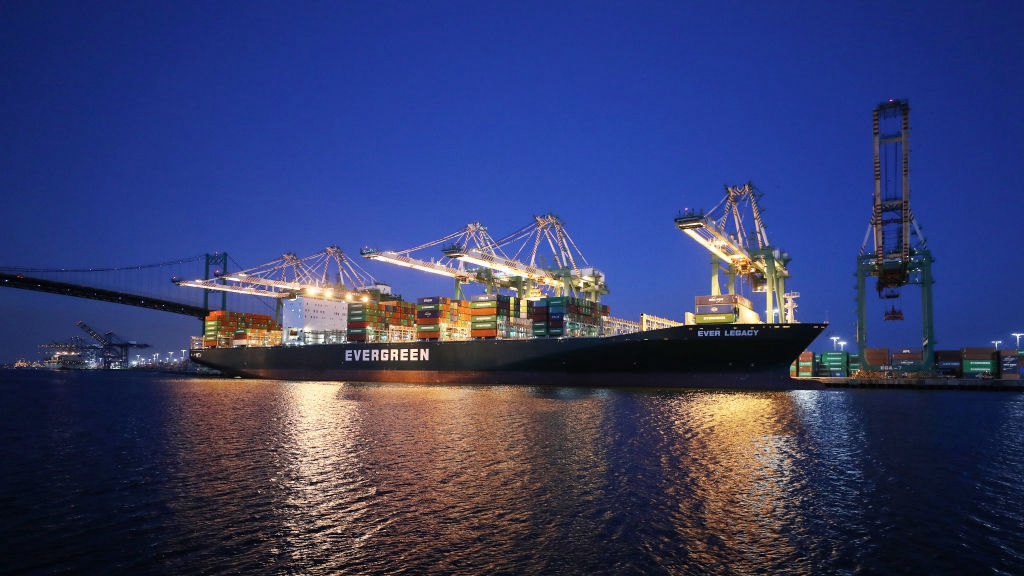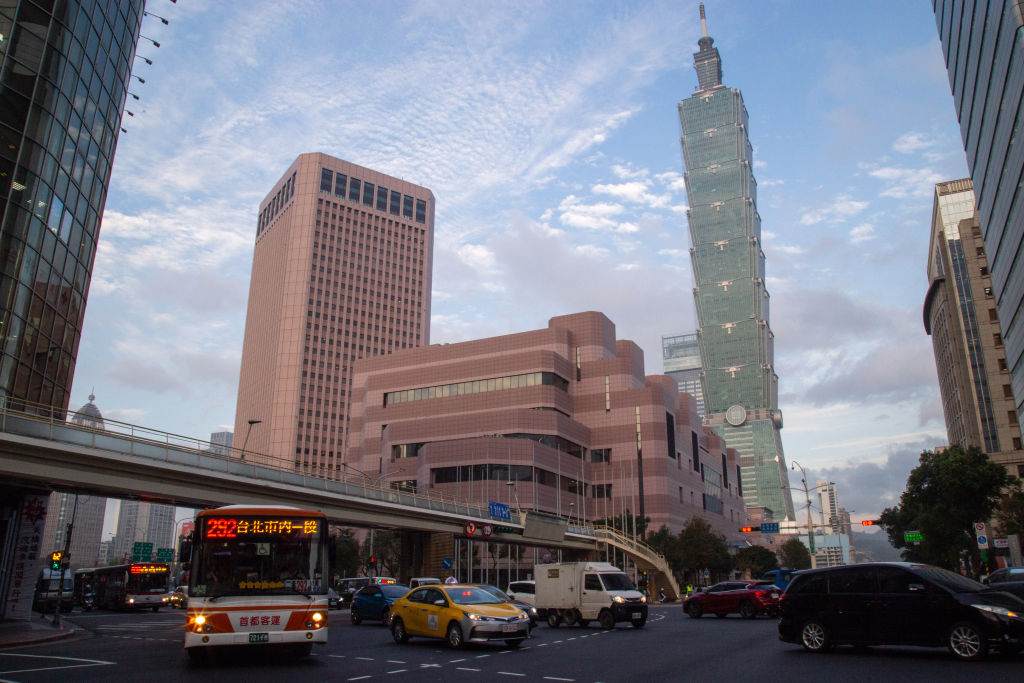
The container ship Ever Legacy is offloaded with cranes after arriving from China's Taiwan to the Port of Los Angeles, March 6, 2020. /Getty
The container ship Ever Legacy is offloaded with cranes after arriving from China's Taiwan to the Port of Los Angeles, March 6, 2020. /Getty
Editor's note: Zhou Wenxing is assistant professor at School of International Studies, Nanjing University. The article reflects the author's opinions, and not necessarily the views of CGTN.
China's Taiwan region submitted its application for the Comprehensive and Progressive Agreement for Trans-Pacific Partnership (CPTPP) on September 22. Zhao Lijian and Zhu Fenglian, spokespersons for the Chinese Foreign Ministry and for the Taiwan Affairs Office of the State Council respectively, expressed stern warnings against the region's move and firmly rejected Taiwan's accession to any agreement or organization of official nature, urging that the one-China policy must be the precondition for China's Taiwan region's participation in regional economic cooperation.
There is no doubt that the CPTPP, a successor of the Trans-Pacific Partnership (TPP) Agreement drafted in 2015, is an agreement or organization of official nature. This trade pact was signed by 11 countries in March 2018, and became effective in that December. According to the latest statistics, the 11 signatories have now combined economies representing more than 13 percent of global gross domestic product, totaling at approximately $13.5 trillion.
The Democratic Progressive Party (DPP) in Taiwan has submitted a bid to join the trade pact in the name of "promoting the commitment to free trade in Asia Pacific" and "improving mutual economic development and thus benefiting all people in the whole region and the world," quoting the remarks by the Taiwan leader Tsai Ing-wen.
But in effect, the move should be interpreted as a DPP attempt to achieve its political goal of "seeking independence" by economic means. In its eyes, accession to the regional economic arrangement would be beneficial to expand the island's so-called "international space."
The DPP's efforts to join the CPTPP are nevertheless very likely to fail because the island as part of China's territory is unqualified to apply. As China's core interest, the Taiwan issue has never been a topic for negotiation. Both the Chinese government and Chinese people would firmly reject the Taiwan region's participation in any official group unless it does so on the basis of the one-China policy.

An intersection near the Taipei 101 building in Taiwan, China, January 6, 2020. /Getty
An intersection near the Taipei 101 building in Taiwan, China, January 6, 2020. /Getty
Besides, all the 11 member states of the CPTPP – Australia, Brunei, Canada, Chile, Japan, Malaysia, Mexico, New Zealand, Peru, Singapore and Vietnam – are also members of the United Nations (UN). Therefore, they need to abide by relevant UN rules and resolutions. According to the UN General Assembly Resolution 2758, which was passed in October 1971, the People's Republic of China is the only legitimate government of China.
In other words, the one-China policy has long become a norm of international relations recognized by the vast majority of countries and a consensus shared by the international society. The DPP's decision to challenge the internationally recognized one-China policy could hardly gain support from any member states of the CPTPP.
Furthermore, member countries agreeing with Taiwan's accession to the CPTPP would cast a shadow on their relationships with China, and this would also add more uncertainties to the regional economy.
In fact, the Taiwan region has failed to expand its "international space" over the past five years. Since Tsai Ing-wen took office as regional leader in May 2016, the DPP has rejected the 1992 Consensus and its key connotation, namely, the two sides of the Taiwan Straits belong to one and the same China. Rather, the DPP spared no efforts to push separatism by expanding the Taiwan region's "international space."
Taiwan's application for membership for the CPTPP is just Tsai's latest attempt to "seek independence," which shows a signal that the DPP is utilizing new channels to realize its political ends. But the chances of changing anything substantively are slim, as evidenced by its bid for observer status in the World Health Organization in the past five consecutive years.
(If you want to contribute and have specific expertise, please contact us at opinions@cgtn.com.)

